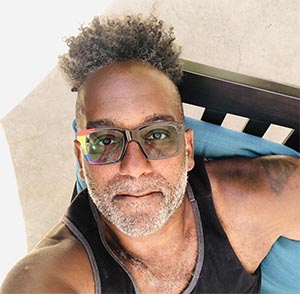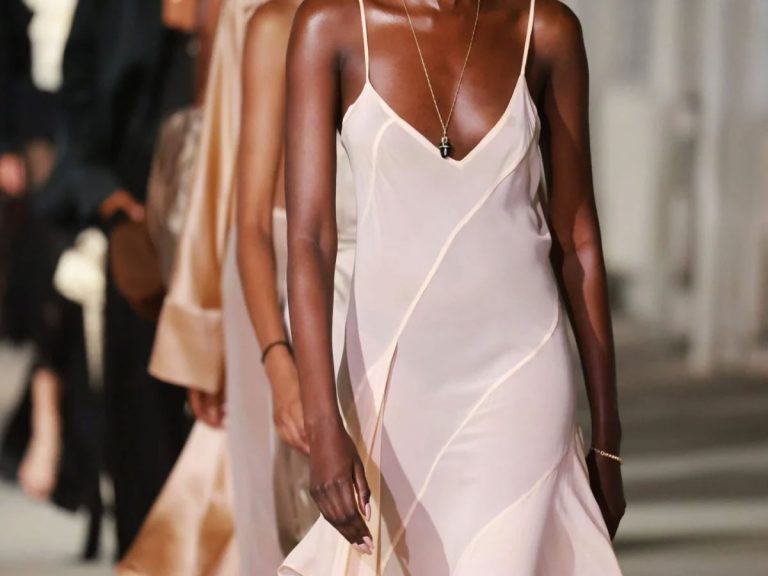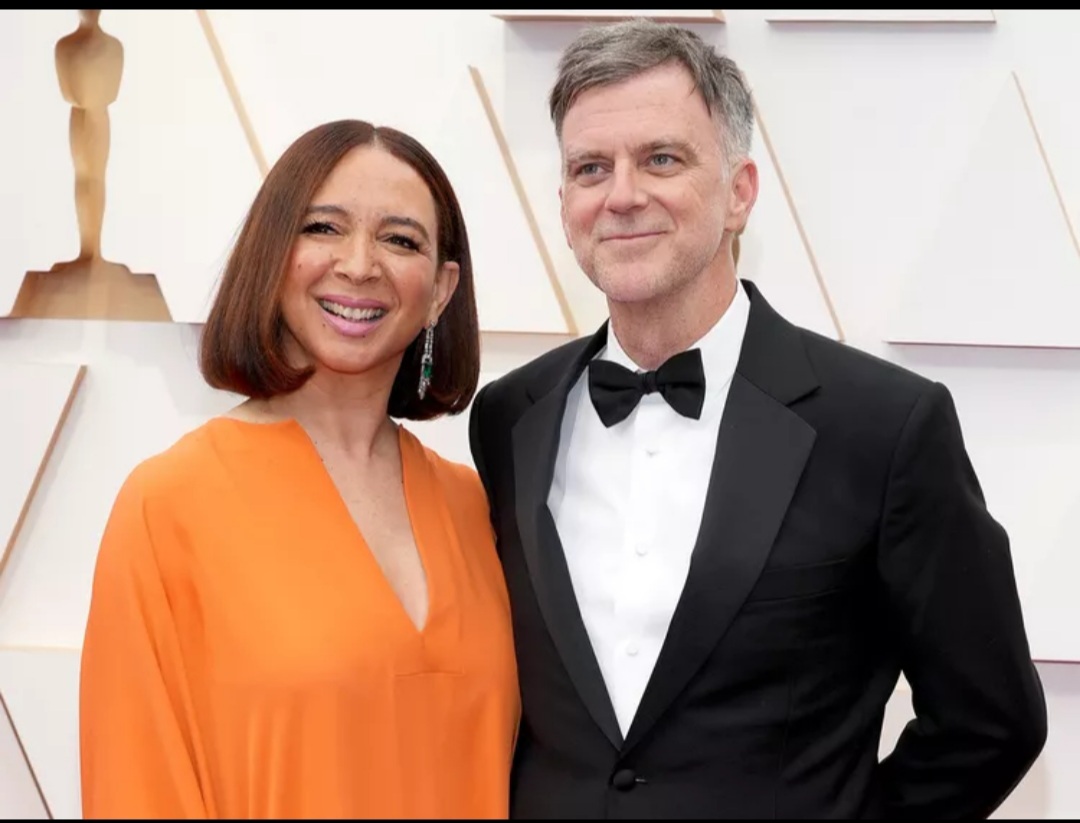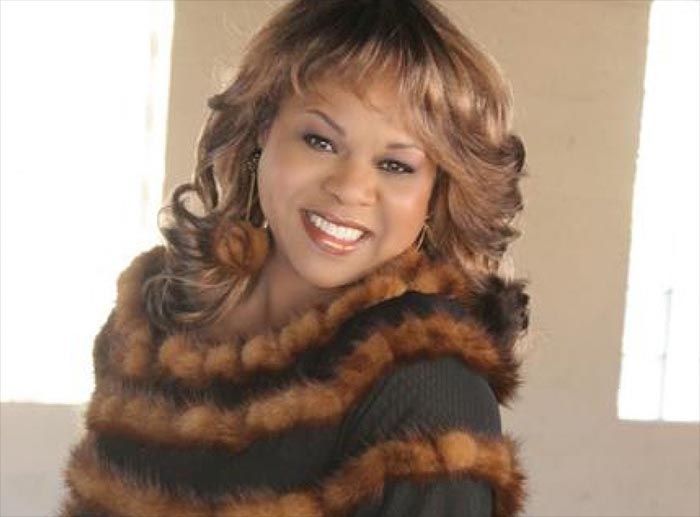
The Grammy Award-winning songbird recalls her unreleased project with superstar producer David Foster, segregation within the recording industry, and her fight to express her spiritual side. She also talks about her current and upcoming projects, including a new theatre piece!
The sterling new Deniece Williams box set, Free: The Columbia / ARC Recordings 1976-1988, is a must-have for any discerning R & B or pop music fan. It includes all 11 of the four time Grammy winner’s early secular albums. Each of them, from 1980’s My Melody (featuring one of Williams’ signature songs, “Silly”) to 1984’s Let’s Hear It For The Boy and that infections, chart-topping, Grammy-nominated title track, is easily listenable even today.
Each of those early albums also includes several barn-burning vocal performances that set the Gary, Indiana native apart from the rest of the vocal pack. Quite simply, no one sounded like Niecy.
That, as it turns out, was very much by design.
“You have to be unique. You have to be true to yourself,” Williams, 70, EXCLUSIVELY told me by phone from her home. “So many of today’s artists are imitations of each other. They’re selling out to a certain sound of the moment, and as a result, you don’t know who they are when you hear them.”
“Back when I was starting out, when you heard Natalie Cole, you knew it was Natalie,” Williams continued. “When you heard Gladys Knight or Donna Summer, you knew it was them. Everybody had their own style, their own expression. I think that’s why, almost 50 years later, I’m still on the radio. We weren’t trying to be like each other. We were just expressing ourselves as artists.”
In Williams’ case, that artistic expression included making musical magic with top shelf producers like Maurice White, Ray Parker Jr., Thom Bell, and George Duke. Williams also recorded a still-unreleased project with David Foster, whom she described as “my least favorite producer that I worked with.”
“Our personalities were very, very different,” Williams diplomatically recalled of her time working with Foster. “It’s such a personal thing to be in the studio with a producer. When the personalities are very different, it makes it much harder to do what you do. As great of a producer as David Foster is, and as much success as he has had, it just didn’t happen with him and me, and that happens sometimes.”
Williams’ early albums also included an element that even today is unique and still quite striking: she insisted on including at least one gospel song on each of her secular albums. While Whitney Houston included “Jesus Loves Me” on her multi-platinum The Bodyguard soundtrack in the 90s, in 1976 incorporating gospel into a secular project was almost unheard of.
And Williams told me that she fought her record label every step of the way to do it.
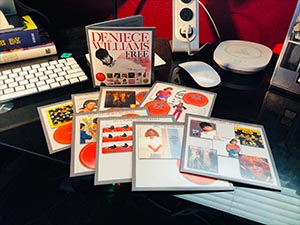
“They wanted to tell me what kind of music to sing, what kind of music to write, and they wanted me to follow what they wanted me to do, especially when it came to the gospel side of my career.”
That “gospel side” includes some of the most rapturous music this side of heaven, including “Whiter Than Snow” from Let’s Hear It For the Boy, “They Say,” a duet with Earth, Wind, & Fire’s Philip Bailey from Williams’ I’m So Proud album, and “God Is Amazing” from her Songbird collection.
“Columbia was very, very angry at me for doing that,” Williams said of those gospel treasures. “They said ‘We’re building a superstar! We’re not talking about that Jesus crap!’ I said ‘We’ll, if there can’t be any Jesus, I don’t know why you’re working with me. I was very much not afraid to express my opinions and my feelings. I was a Christian and wanted to include that side of me on my projects.”
“Also, during that time, you were either a black artist or a white artist,” Williams recalled of those early days. “You were assigned to one particular department. The pop department was saying ‘She’s a black artist” and the black department was saying ‘Yeah, but she’s selling pop.’ That conversation went on for a lot of years. They could never figure out where they felt I belonged. I felt I belonged wherever!”
What’s clear to this writer, after revisiting Williams’ Columbia albums, is that all of them belong in your music collection, and Williams belongs behind the mic! I was thrilled to learn that after a far-too-long pandemic pause, she’ll be back there very soon.
“I am producing a theatre piece, and I’m looking to tour with it next year,” Williams confided. “It’s called Live At The Crescendo Club starring Ella Fitzgerald, Sarah Vaughn, and Pearl Bailey. I’ll be playing Sarah Vaughn. I had the honor of having dinner with her at her house!”
“Then, one year at the Grammys, I heard that Ella Fitzgerald had just entered the room, and I swear I played linebacker and had to have knocked over five people getting to her,” Williams laughed. “She was so kind and so wonderful. I told her how much I loved her and respected her gift, and she said ‘Well, you’re here, so you must be doing something pretty good, too.’ It was just an honor to hear that. I never got the chance to meet Pearl Bailey, but I respected her so much.”
“I created the show because I want to honor those ladies for what they did for black women in the 1950s,” Williams said. “They were solo artists struggling and changing the face of music. In reading their biographies, it was heartbreaking to learn what they went through. I’ll be doing a few concerts for myself, and I’m talking to some people about live streaming a concert, but I’ll be concentrating my performance efforts on the theatre piece next year.”
Williams shared that she’s started a coffee company with one of her sons, having opened their first location in Las Vegas, and she’s also invested in The Bourbon Room in Hollywood. It will come as no surprise that the artist who insisted on including Christian music on her secular albums isn’t finished singing gospel: she’ll be performing (and live streaming) A Hallelujah Sunday with Deniece Williams.
This writer could only summon one word to convey my feelings about that: a-may-yay-yay-zing!
As we wrapped up our chat, Williams reminded me that from the outset of her groundbreaking career, she always kept several irons in the fire.
“I never really wanted to sing,” Williams said. “I was just around a bunch of friends and musicians, just hanging out and writing. So for everything to happen the way it’s happened, it had to be God. I was just living my life. And I came into the industry with children, and was a single mother.”
“I thank God for my music career, but it was just one slice of the pie. It wasn’t the entire pie,” Williams said. “There were other things that held my attention and my love. And I dedicated by time and my efforts to those things, as well.”
You’ll listen to Free: The Columbia / ARC Recordings 1976-1988 and you’ll be thankful that Williams dedicated her time and efforts to them, as well.
CD Collection Photo Courtesy of Coleman Communications.
